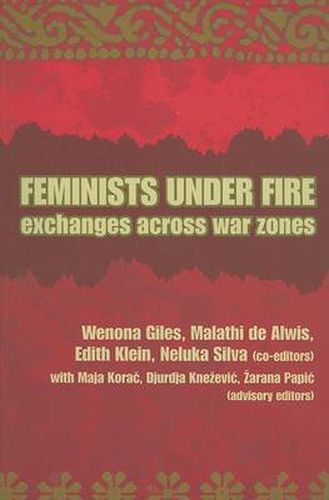Readings Newsletter
Become a Readings Member to make your shopping experience even easier.
Sign in or sign up for free!
You’re not far away from qualifying for FREE standard shipping within Australia
You’ve qualified for FREE standard shipping within Australia
The cart is loading…






Feminists Under Fire is about women living and working in conflict zones. Focusing on the civil wars in Sri Lanka and the former Yugoslavia, diverse authors face the problems of nationalism, ethnic conflict, and militarized violence. They explore commonalities and differences between the two regions, and consequences for women, their societies, and feminist politics. Women are neither simply victimized nor empowered by war; their experiences are more complicated. While they suffer from war-related violence and upheaval, some women living in traditional societies find that war releases them from constricting hierarchies. Others find it reinforces conventional gender roles. This ambivalence needs to be examined and understood. In addition to such concerns the collection addresses issues of domestic violence, rape, intermarriage, victimization, feminist organizing and anti-war activism, women’s self-help organization, and political resistance. This vibrant collection emerges from The Women in Conflict Zones Network, an international collaboration of activists and scholars.
$9.00 standard shipping within Australia
FREE standard shipping within Australia for orders over $100.00
Express & International shipping calculated at checkout
Feminists Under Fire is about women living and working in conflict zones. Focusing on the civil wars in Sri Lanka and the former Yugoslavia, diverse authors face the problems of nationalism, ethnic conflict, and militarized violence. They explore commonalities and differences between the two regions, and consequences for women, their societies, and feminist politics. Women are neither simply victimized nor empowered by war; their experiences are more complicated. While they suffer from war-related violence and upheaval, some women living in traditional societies find that war releases them from constricting hierarchies. Others find it reinforces conventional gender roles. This ambivalence needs to be examined and understood. In addition to such concerns the collection addresses issues of domestic violence, rape, intermarriage, victimization, feminist organizing and anti-war activism, women’s self-help organization, and political resistance. This vibrant collection emerges from The Women in Conflict Zones Network, an international collaboration of activists and scholars.